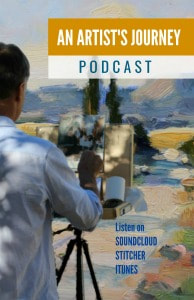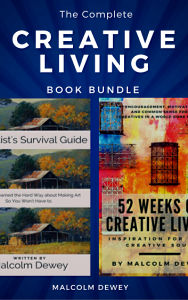|
South African artists seeking the best fine art supplies from around the world are raving about The Italian Artshop. Situated in Rondebosch, Cape Town, The Italian Artshop stocks some of the top international fine art brands. In this episode of An Artist's Journey Podcast I talk to the owner of the store, Skye Kennedy.
The Finest Art Material Brands
South African artists have long been starved of many of the finest art materials. But not anymore. Brands such as Michael Harding, Rosemary & Co, Senelier, Mabef and many others are now represented in this market by The Italian Artshop. I talk to Skye Kennedy about her fantastic art store in this episode. Show Highlights In this interview you will find out: - How the Italian Artshop grew from humble beginnings to its present store in Cape Town; - The secret to the The Italian Artshop's leadership in the fine art niche; - How focus and specialisation has helped the store's growth; - Skye Kennedy's philosophy for turning artists into loyal fans; - The main challenges faced by the store; - Tips for artists to grow their art business and much more Listen to the full show:
Read the Transcript:
Welcome to “An Artist’s Journey”, the podcast about creating and thriving as an artist. I am your host, Malcolm Dewey. Let’s begin. Malcolm : In today’s episode of the Artist’s Journey podcast, I’m going to be talking to Skye Kennedy, the owner of The Italian Art Shop, situated in Rondebosch in Cape Town. The Italian Art Shop has built up a strong reputation for keeping the finest art materials imported from around the world. We are going to find out how the store came about, its growth and how its focus on this niche in the fine art industry has made it the leading fine art store in South Africa. Do you know what the number one question is that I get asked by artists? Everybody wants to know how to loosen up their painting style. You can find the answers on the course How to Loosen Up Your Painting. With over five hours of video demonstrations, lessons and much more, you can find the answers to getting that loose and impressionist style that you are looking for. You can find more details about this course on my website, malcolmdeweyfineart.com And now, on with the show. Today I’m delighted to have Skye Kennedy as my special guest. Skye is the owner of The Italian Art Shop in Cape Town. Welcome Skye. Skye : Thanks very much, Malcolm. Malcolm : Great to have you on the show, Skye, and I’m looking forward to getting to know a bit about the background of The Italian Art Shop. Can you tell us a little bit about how you started your entrepreneurial journey and the motivations for creating the Italian Art Shop. Skye : Well, it wasn’t actually my shop to start with. The history of The Italian Art Shop actually dates back to about 15 years ago. When my father retired, he was an entrepreneur, and he very quickly got bored. Having some free time on his hands, he decided to take up some art classes. He started with pastels and then moved on to oil painting. Back then, you could only really get two brands of oil paint in this country - Daler Rowney and Windsor Newton. Daler Rowney doesn’t have an artist quality range of oils in this country, and the Windsor Newton ones, although good quality are very, very over-priced. That prompted my father to look elsewhere abroad and do a lot of research and a lot of emails backwards and forwards and testing of samples and he actually decided to bring in a few imported paints, really just for himself and for his art class. It wasn’t actually a business venture at this time, but it was so well received by the members of his art group, that they then quickly spread the word and he was getting more and more calls from other artists to come and “can they buy some of this amazing paint that he’s bringing in.” And so, relatively quickly, when I was growing up we actually had what we called and art shop from home. There were a lot of barriers to entry. People had to ring the doorbell or make an appointment, and the dogs would bark, and they had to come in and walk through the house and everything like that. So there were a lot of barriers to entry, but despite that it grew in popularity. There were constantly people buying art materials and my father then started bringing in brushes and a few other bits and pieces and some auxiliaries. When I was at university, I actually started, just to make some money, going to various art classes and art exhibitions and sort of promoting and selling some products. That’s really how I started to get to know the products and to sort of understand the art techniques and different materials and how much more there was to it than just putting some paint on the canvas. I did a lot of research, because I can’t really sell anything properly unless I actually am confident in it and know what’s going on. So for many years, growing up and through varsity, we had this little art shop sort of in the lounge, and then it was in my dad’s studio. And then, at one point, probably about 10 years ago now, I was out of varsity and I was working. I was offered a promotion at my job and I said to my father, “You know I’m thinking of taking this promotion” and he actually said to me, “Well, I was thinking of asking you to come on board and try to get these products into other shops around the country.” I thought about it, and I actually decided to take him up on that offer and we joined forces to get the brands that we were promoting out into other shops around the country. We were fairly successful, but what we found was that once the products were in other shops, the other art shops weren’t really promoting them and they didn’t really understand what made them better than other brands. So what was happening was that they were just sitting next to the other brands that everybody knew, and customers were just walking in and grabbing the good old brands that they were used to and no-one was there to advise them about new brands. We had a look at our books and we actually realized that, despite the fact that we had the products looking great in a whole lot of shops all over the country, combined sales we were actually making more from our stupid little shop at home, with all its barriers to entry. That made us realize that actually you need to tell people why this paint is better. You need to explain to them the difference between student and artist brands and, basically, educate them about it. That’s actually when I decided then that it would be a good idea to open a proper retail store, where we could accept credit cards. At the house, apart from all the other barriers to entry that I’ve mentioned, you had to pay with cash, or if we knew you very well you could do an EFT, but we didn’t have credit card facilities. Sometimes people would come to the house and no-one was home. So it wasn’t working and I said to my father, “Let’s open a proper retail store.” My father had been in retail many, many years ago and he sort of looked at me and said, “Sorry, I don’t want to have anything to do with retail.” The staff and hours and that kind of thing, he’d done it before and he didn’t want to do it and so that’s where I actually then took over the art shop. I bought him out and, about five years ago, opened what I call the first proper Italian Art Shop, which was a little retail store on the Rondebosch Main Road, where we finally had credit card machines, lots of space to actually increase the ranges and bring in papers, and pencils, and more canvases and wider ranges of the usual products as well. Then, about two and half years ago now, we moved and now we have an even bigger store in the Riverside Mall in Rondebosch. That’s basically the history of how it goes, and now we’ve been chugging along very nicely in the Riverside Mall for about two and a half years. Malcolm : Skye, what were you studying at university? Skye : I was actually studying Business Science Marketing, but, rather embarrassingly, I wasn’t failing or anything, but I actually left university in my final year. I just decided that marketing was not really something that you can be taught, it’s something that you can do and I wasn’t really interested in learning multiple choice questions about how to conduct surveys, etc, etc. So I actually left, and, at the time, I was already making some money working for my father and then even through my other working careers, I was always helping out with the art shop a bit – a decision that I don’t regret. Malcolm : Listening to your story, it sounds like you immediately had an attraction to the business and clearly you were making some money on the side. I’m sure you’re studying actually got in the way of your entrepreneurial ambition. Skye : I think that probably is exactly what happened. I’ve got an inherent business-sense, so I like marketing, I like sales and I like the business side of things, except for accounting, but other than that, I like the challenge of taking something that is in essence nothing and turning it into something better or something successful. I think probably, yes, at university I wasn’t fully satisfied, I wasn’t terribly happy. I was doing okay, I was passing and everything, but I wasn’t fulfilled. Even when I was doing the grunt work of going around to art classes and actually selling the products, I was really enjoying it and I loved learning about the materials themselves. What most artists know is just the tip of the iceberg and there is just so much amazing information out there, and it was just such a great learning experience. Malcolm : Starting a business can be quite an intimidating process. It sounds to me that you never had time to sit back and worry, and feel fearful about taking this step. You just took it and ran with it. Is that fair? Skye : Yes, it is. There obviously is a risk in anything that you do, but I must say that I never, ever thought for a second that the proper retail store was not going to work. That is really, because, like I said, the shop from home, despite all its barriers, was actually doing okay when you consider that it wasn’t an easy experience for artists to come to our house and pay with cash. We didn’t even have stuff on display then. We had a tiny little space, so we’d show color charts you, you would pick out your colors and we would run to the garage and go and get them. Despite all of that, we still did a relatively decent turnover. When I was thinking about the idea, I did sort of mention it to customers and every single one of them was supportive and encouraging and really, really excited about it. So I knew that, at the bare minimum, we were going to turn over obviously what we had been doing at the shop, but we needed a lot more for rent, to cover the sudden rent that we had to pay. There was obviously doubt as to how successful it would be, but I never believed for one second that it wouldn’t work. Malcolm : Clearly you had a strong support base at home. It sounds like your dad was behind you, and you mentioned you had the good support from existing customers, so all of that, I’m sure, helped as well. Skye : Absolutely. Look, my father is still very involved in the business and, whilst I run everything day-to-day, I am constantly still phoning him about this and that, and what would he do and should I do this, and so his support is paramount. All our customers have just been absolutely wonderful and the first shop was so well received, and the second shop, when we moved and had a bigger shop, everybody followed us and told their friends. A huge amount of our success is actually word-of-mouth. It’s very difficult to market to such a small niche target market and so, whilst I do what I can, a huge amount of our marketing is actually just word-of-mouth. We haven’t heard anything negative, to be honest. Malcolm : Word-of-mouth is still the best form of marketing. Skye : Exactly. Malcolm : And isn’t it amazing how many great businesses start off in the garage. Just a few weeks ago, I was talking to Gavin Van Winsen, at Winsen’s Canvases, and the same thing with them, starting off at home, essentially in the garage, and now a thriving business. Skye : That’s exactly what happened to us. It’s actually a really nice way, because it’s a slow increase so, you spoke about the risk and all that kind of thing, but when you start off really small like that, and nurture something the right way, then it almost increases in baby steps and you don’t suddenly take massive plunges and it just sort of organically evolves. Malcolm : Absolutely, that is a critical lesson I think people need to take into consideration when starting a new business, or wanting to leave their job and start a new business. You can minimize the risk by starting off small and working from there. Skye : At the beginning, when I was helping out with my father, I was either at varsity or working, and doing this in my off hours. It’s definitely possible, and it’s a way of minimizing your risk, like you said. Malcolm : Skye, talking about the products of The Italian Art Shop, what do you think makes The Italian Art Shop different from the other art shops in the country? Skye : I think there are four main things that separate us from your typical art shop. The main one, which the other things just piggyback off, is that we focus only on fine art. What that means is that we can focus all our attention onto fine art and, instead of diversifying and keeping scrapbooking stuff and face-paint and glitter and glue and that kind of thing, you won’t find anything like that in our shop, but we have a very, very wide range of products for fine art. That’s the second thing, we’ve got a wide, wide range of products specifically for fine art. So when you come into our shop, yes, we’ve obviously got paints, and brushes, and canvases, the usual stuff, but we also have more unique things like cobalt driers, rabbit-skin glue and genuine stock white and many more. Even within the range of products we’ve got various options. So if you’re an oil artist and you come into The Italian Art Shop looking for a canvas, we can sell you cotton canvas that’s universally primed, cotton canvas that’s oil-primed, universal primed linen, oil primed linen, ready-made sizes, we can sell it to you in strips off the roll, we can make it up to any size. That basically comes from us having a small niche focus that we can then really broaden on. The third thing, which is very important, is that we import the vast majority of our products from overseas and that means that we can put a lot of time and effort … we test everything. We make sure that we are fully behind the products that we import so you can be guaranteed to get a good quality product that you can’t get anywhere else in this country typically. The other thing is, amazing value for money. A lot of people get put off by the fact that a lot of our products are imported and therefore they must be very expensive. The truth is, yes, if you compare our oil paints to something that you can buy at Builders’ Warehouse, for example, our paints are going to be a lot more expensive. But, when you compare apples with apples, and you compare, for example, our oil paint or our watercolor paint with other imported brands of similar quality, our paint is a minimum of about 40% cheaper. In some cases, our paint is considerably cheaper than our competition, other imported brands, and still better quality. Importing your own brands allows you to have some flexibility with your pricing. We make a very small mark-up, an embarrassingly small mark-up for the industry, but it means that our customers can get their hands on really good quality brands, that are still affordable in the South African market. And lastly, which is probably one of the most important things, is that when you come to The Italian Art Shop, myself and my staff know a great, deep, detail about our products, about painting techniques in general and even about other brands and other products. So if you come into our shop and ask “I’m here to buy some varnish”, we don’t just shrug and point in the direction of the varnishes. You will leave there knowing how to use the product, what the different types of varnishes are, what is best for your painting, when you should be varnishing, what can go wrong, what maybe has gone wrong in the past. And I think that’s really important, because there’s not a lot of information for artists on even general topics like oil painting mediums, for example, or watercolor painting mediums. That’s something that really sets us apart, is the knowledge of myself and the staff and the education that we can offer to artists who want it. Malcolm : It’s interesting, because, perhaps five or six years ago, I would go to the local art shop and there were only two brands of oils paints, two well-known brands, and that position has hardly changed in my local situation. And when I go online and look at other South African art shops, it’s still pretty much the same thing, two or three typical brands that have been around. As you say, if you want to use the quality materials that some of our art heroes are using overseas, The Italian Art Shop is the only place to find them. Skye : I think that’s something that, not only sets us apart, but it also has allowed us to survive in an economic market where a lot of art shops are actually closing down. We have a very small market, that niche market, of what we call serious artists. They don’t have to be professional artists by any stretch of the imagination, but just someone who is serious about their paint and someone who values quality over price sometimes, those are our target customers. A lot of customers don’t value paint as a luxury item, it’s a necessity for them. If you go to almost any other art shop, you know what they’re going to have, you know which brands they’re going to have, generally speaking. When you come to our art shop, probably you will have never seen these brands before, or very rarely have seen these brands before. That’s exactly what we strive to do: offer unique products to customers in South Africa. Malcolm : Do you think there was a perception, maybe still an existing perception, with a lot of art suppliers in the country, that South Africans are hobby painters and they won’t be interested in artist quality paint, or anything slightly more expensive than what we are used to , so there’s no point in even looking at bringing in paints from overseas? That sort of perception of “we’re too small, we can’t swing it in this country”? Did you find any of that perhaps? Skye : I think there definitely is some of that and, you know what, not all of it is perception. I mean, a lot of it is actually unfortunately true. South African is very cut-off … obviously, internet and such makes it much easier nowadays, but even still we’re very cut-off from the international art market. International magazines and stuff that you get here are incredibly expensive. There are brands that the rest of the world knows like second-nature, South Africans have never heard of. I think a lot of it is true, but a lot of it is actually more of a lack of education than anything else. A lot of artists don’t even know of our brand of oil paints called Michael Harding. It’s a small company. Whenever I do approach companies, potential suppliers, I always mention to them “look, this is a small market, it’s a niche market. We sort of own that niche market luckily, but it’s never going to sell 20 000 tubes of paint a month.” We tend to go for smaller companies, as well, family run companies where everything is quality checked and it’s their name on the line. I don’t know what percentage, but a large percentage of our customers have never even heard of Michael Harding, and if you go overseas, America and the UK, it’s a very well known brand. So a lot of it, I think, actually has to do with education. Importing stuff is obviously always going to be more expensive than the locally made brands, and even Chinese brands, so there are still a lot of artists who just can’t afford good quality paint and that it what it is. I think the perception, a big part of the perception, is just because a lot of the artists don’t actually know about the other brands. Malcolm : Listening to what you are saying, it sounds like possibly there is an opportunity for South African entrepreneurs or businesses to go into manufacturing better quality materials, whether it’s paint or easels or any other type of equipment. Skye : The downside is that, like I said, it really is a niche market, so if you were just to make some really, really good quality easels, for example, I think the market is too small to sustain you as a business, if all you are doing is easels. If you are making everything, and you’re doing it really well, then I think there is an opportunity, I really do. The problem is, like I said, if you were going to make some easels and you were going to make some really good quality easels and mark them up enough to actually make it worth your while, I can’t see you selling very many. It would have to be something on a slightly wider scale I think, because it is a niche market. The reason that The Italian Art Shop survives, if you will, in the niche market is that we’ve positioned ourselves at a point where we sort of own that niche market. We don’t sell a lot of easels, for example, and we sell a few of everything, but it is a niche market. Good quality stuff costs more money. There’s definitely room for a South African to come in and shake things up, no doubt about it, but I think you would have to be a bit careful about exactly where you position yourself in the market. Malcolm : Now it sounds like The Italian Art Shop had a fairly steady upward progress, maybe bucking the trend over the past five, six, seven years of the economy, which is fantastic. Does any particular moment stand out as a pivotal moment where the business really took a leap forward? Skye : Like you said, and like I said, luckily it was a sort of almost organic evolution. It just sort of moved in the right direction all the time without… obviously opening the retail store was big moment, but it sort of just came together perfectly. I think a pivotal moment, although I always knew it was going to work, was when we opened the new shop. We’ve been there now for two and a half years and it’s still called the new shop. When we opened the new shop in the Riverside Mall, the day that we opened, I came in and set things up, and I turned the lights on and everything, and I looked around at the new shop, and I thought “this is a great shop and this is going to work now”, and it was a fantastic move for us. A good business move as well as… it was just great. My staff love it there, I love it there, customers love it there. But definitely that first morning of opening the shop, I was, I think, even more excited than when I opened the first shop to begin with. I just looked around and I just knew that this was going to be a great shop. Otherwise, I think everything else just did move upwards, which was fantastic, but it moved nice and gradually upwards so it was a smooth ride. Malcolm : I think, just looking at pictures on your website of your shop interior, it’s the sort of place where artists must just walk in the door, get starry eyed and wander around wanting to just put everything into a bag and … Skye : That’s our goal (laughs). You know our shop works a bit differently from others, because we have such a niche market we don’t have 20 customers in our shop all the time. We have one or two, which means that you get one-on-one service. We want you to come in there, ask questions and talk, and watch the DVD that’s playing and have a cup of coffee if you want to. That’s how we designed the shop as well. Malcolm : Okay, so as things stand now, what do you regard as your biggest remaining challenges that you have to constantly keep an eye on? Skye : I think that could probably be answered in two words : exchange rate (laughs). Look, the South African economy is an importers’ worst nightmare. It’s up and down and up and down, and unfortunately luck has never been on my side when it comes to paying my suppliers. I have never, to date, paid my suppliers when the rand has been strong. The exchange rate is really difficult. And the other thing is that in South Africa, we’re so far away from everything else that transport is also a massive problem and it’s always a struggle for me when I have to work out the selling price of something and I can see that the mark-up is so low, and yet the selling price is actually quite high. That’s something I always struggle with because I always want to bring the price down, bring the price down, bring the price down, to make my customers happy, but then that can be at the detriment of the business of course. Importing products, especially art materials because they carry a duty as well, the price of the tub of paint, or whatever it might be, is almost irrelevant because we have to pay 20, 30 and sometimes as much as 50% transport,20% duty, 14% VAT. Then, of course, when I pay my suppliers when Zuma’s fired someone else and the rand has absolutely tanked. So that is a big problem for me. You know, doing the right thing would be just to set a mark-up and just say this is the price, but I’m always keeping the prices low and keeping the margins low, which means that our turnover is great, but our profit isn’t always that great. That’s something I struggle with, being a bit more hard about it, I struggle with constantly. The second thing is that at The Italian Art Shop we really pride ourselves on customer service, on being quick, and efficient and knowledgeable. If you order something, it will come in and we will send it to you. Something that I struggle with a lot and gives me hours of frustration is other companies, you know courier companies and our suppliers, who don’t necessarily provide us with the same service. If a customer is waiting for a parcel and the courier has just not delivered it, for example, then I feel that weight on my shoulders. I am unfortunately often let down by other suppliers and other couriers and I just expect that same level of service that I provide to my customers. Unfortunately, in South Africa, you don’t get it very often. That’s just a constant frustration for me. Malcolm : Yes, I get that quite often, talking to businesses is simply the level of professionalism or sticking to deadlines, or undertakings, the basic things like that that you need to count on, and it’s the smallest thing that can upset the big project. Let’s say we’re looking back in time, you finished university and you’ve started working with your dad and starting the business, probably around about 2011 or 2012. If you were looking back to that point, what advice would you give to yourself? Skye : I think the only advice that I would give to myself would be to start sooner. I’ve been very lucky in that we haven’t had major setbacks, everything really has just been really fabulous. I wake up every single morning and I want to go to work. And even when I’m on holiday, I want to get back to work. So I’ve really been lucky in that respect. The only advice, I think, that I would give myself is just to start the whole thing sooner. Malcolm : Sounds like the ideal situation. Skye : I’m lucky. Malcolm : Most of us could say that, especially artists : Why didn’t I start sooner? That’s certainly one of my things. Mentioning artists for a moment there, from an early age, you were exposed to artists and their work, and obviously a lot of South African artists, and now you’ve been exposed to a lot of international artists. If we look at South African artists, semi-professional or full-time artists, what would you say, taking into account the economy and all of those things, has made the difference between artists being successful and those that are struggling. Skye : It’s not an easy question to answer. The art selling industry is certainly not where my expertise lies, so I can only tell you what I encounter basically through my customers. There is definitely an element of luck. There are some artists that do really, really well and others who don’t, and sometimes the people who don’t paint even better than the people that do. There is definitely an element of luck and timing in it, without a doubt. There are probably one, two, three things that I have noticed about artists, a very vague generalization. Number one, is that artists generally are terrible business people. They are using the creative side of their brain and, very often, I shake my head and think “No, don’t do that, do this.” They generally are not great business people. The second thing that I’ve definitely noticed from the vast majority of my customers, even those who are already selling their paintings, is that they either don’t really realize their potential or a combination of that and lacking in self-confidence. Customers show me paintings all the time and they blush and go “whatever”, and some of them paint … well, a lot of them paint absolutely beautifully. Really, really beautifully. And they don’t really believe you. A lot of them don’t want to go to galleries and self-promote and be self-congratulatory, “look at how wonderful my paintings are”, they want somebody else to do that for them. I don’t know anything really about the actual art market and the selling of paintings as such, but there is definitely a need for more art agents out there. Not the big brokers who are putting 50 pink paintings in this hotel and 50 yellow ones in that hotel, but more on the ground guys who are taking on artists and trying to get them into galleries, maybe organizing certain exhibitions for them, that kind of thing. I don’t know businesswise how it would work and how successful it would be, but I can tell you now that the artists need that kind of thing. It’s very difficult, the fear of rejection. You send your paintings to all these galleries and no-one gets back to you, or they get back to you with a “Dear John, sorry, we’ve got too many paintings as the moment”. There is definitely a fear of rejection out there. The biggest thing, I think, is a lack of confidence and a lack of realizing how good they really are. Malcolm : Yes, I guess that’s a typical problem with artists and, like you have found great art materials from overseas, I think maybe we also need to look at some of the lessons that artists have learnt overseas and are promoting themselves, and are doing the hard work and learning. As you said right in the beginning, starting your business, you’ve got to be a believer. You’ve got believe in yourself first. Skye : There is no doubt about it. If you don’t think your paintings are good, nobody else is going to. Gee, some of my customers can paint, like really, really good paintings. I don’t think that they think that they’re terrible at it, but they don’t really realize how good their paintings are. Malcolm : Skye, when it comes to painting, are you a painter yourself or are you a collector? Skye : I’m definitely neither. I’m probably part of both, but neither. I like art, I definitely have a creative side to myself, I’ve been to a few art lessons and absolutely love it, but the reason I am not an artist is just a time factor. I can teach other people how to paint. I think I can teach them very well how to paint, but don’t ask me to paint something because if you don’t have the time to put in you’re never going get good at even drawing an apple. Unfortunately, it is actually a time factor for me. I think, probably, what I would consider a creative outlet is actually testing, and playing with an experimenting with the various products. Every single thing in our shop, I have tested or tried out and I absolutely love it. Even though the end result is not an artistic masterpiece, it normally goes in the bin, the act of mixing colors, and playing with mediums and just playing around with the art materials themselves is, at the moment, enough to give me some satisfaction that I have some outlet for my creativity. So, no, I am not an artist. I just like art and art materials. If I had time, I would definitely take up some art though. As far as collector, I love paintings, I love art, I go to lots of exhibitions and I enjoy art. Unfortunately, even though the art shop is wonderful, and fabulous and I love it, I’m never probably going to have enough money to call myself a collector. I have got paintings that I have collected over the years, but a lot of them, and a lot of my favorite ones anyway, actually come from my customers. Some of them have even been gifts, which is just mind-blowing. And then sometimes if I see something I really like and it’s a customer of mine, they sell me the painting and in lieu of payment we’ll do art materials, or something like that. If I had money, I would no doubt be a collector, and I would retire and then I would be an artist as well. In reality, I am a little bit of both, but actually neither, if that makes sense. Malcolm : If you were rolling in it and you had a choice, is there any particular world artist or historical, or present artist that you would love to collect? Skye : If I was completely rolling in it and money was no object, I could see a nice little Monet in my lounge and Van Gogh in my kitchen. I buy art that I like. It’s not about necessarily who painted it or what it will be worth in 50 years, it’s about something that speaks to me. So, in all honesty, the Monet and the Van Gogh would be nice, but I think I would buy a lot of paintings from my customers. I am a massive Gavin Collins fan – a huge Gavin Collins fan. I absolutely love his paintings. They are just my style. I think I would probably go to every exhibition and every gallery and walk away with one or two paintings. And then, luckily, I would be rolling in it so I could build a warehouse to put them all in. I’ve got so many customers who paint absolutely beautifully and that would probably be my first port-of-call. Malcolm : Let’s have a look at the future a bit at The Italian Art Shop. Are there any special plans or exciting developments that lie in wait for artists out there? Skye : I know that if there are in Jo’burg listeners they will be asking for a shop in Jo’burg. We get numerous requests, but not at this point and not in the near future. We do have some really nice new products and new lines coming in, hopefully towards the end of this year, but I can’t say anything about it, because it’s a secret. Anyone who does want to keep in touch with new developments and what’s going on, that kind of stuff is always first on Facebook and Instagram. We’ve got some new stuff coming, December time hopefully. We did also bring in a range of new random products that you couldn’t get in this country before, like nice porcelain palettes for water colorists, and nice pastel boxes, and we’ve got a wonderful thing called a Lay Flat Pad. It properly lays flat so that you can paint or sketch over both pages. And we brought in a whole lot more, and we just brought a few of each in to test the market a couple of months ago, and sold incredibly well, so I’ve got more of that stock coming as well, but then a few new things, but at the moment that’s still a secret. Malcolm : So for Christmas some exciting developments. Skye : I’m always looking for new stuff. Malcolm : I’m looking at some of your products now that really stand out for me, recent additions to your store. You mentioned Michael Harding paints, which I think is a real coup for The Italian Art Shop and then, of course, Rosemary & Co brushes. Skye : And we are increasing our range of those all the time. We have just added the new Evergreen range, which is fabulous. Malcolm : It’s amazing to me, when I go online or looking at famous artists, they’re using those paints or … Skye : And they’re using those brushes. Malcolm : Exactly. When I was painting with bristle brushes initially, and buying some of the local stuff, and really terrible, terrible quality paintbrushes and I would constantly be using my palette knife to pick bristle hairs out of the paint on the canvas. And then you brought in the Paris Classique bristle brushes and I tried one of those brushes for the first time. People don’t believe me when I tell them, but it was a mind-blowing experience, that the feel of a paintbrush could be so vastly different from what I was using. People say “You can use a stick, it doesn’t matter”. The paintbrush is a profound part of the painting. You have to try it. The Rosemary brushes are also a step up. Skye : I always say, to my staff as well, is that we have complete confidence in our products. I know, with 100% confidence, that when you try a good brush, you’re going to like it, but the hard part is to get a customer to buy just one tube of Michael Harding paint, or buy one Rosemary brush, or buy one Raphael brush. And that’s actually what you’ve got to focus on, is getting people just to buy one, because once they buy one then they actually will realize. We’ve actually had customers before who even bothered to phone and say “Listen, I completely doubted you. I never thought that it was worth spending R100 on a brush, but I have to tell you I’ve used it and it’s fabulous”. And once we sell them one, the brushes and the paints and that kind of thing are such good quality and they’re so brilliant, that those customers will come back on their own next time and buy more brushes. Our job is just to get them to try one. And then also, like you said, you can paint with a stick, and yes you can paint with a stick, but you’ll probably paint a better picture if you paint it with a brush instead of a stick. People often say “don’t blame it on your tools” and “a good artist can paint with anything”. Yes, a good artist can paint with anything, but they’ll paint a better picture if they’ve got better materials. A mechanic will fix your car easier if he actually has working tools. Malcolm : Yes, quite true. Skye, I’m a big fan of books and I know that The Italian Art Shop has some fantastic art books. I think a lot of our learning about art comes from books as well. What would you rate as your favorite book? Skye : We’ve got quite a range, so it is difficult to pick. Mine, personally, is probably the Alvaro Castagnet book, but that’s because, personally, I absolutely love his style and I find the book informative and absolutely beautiful to look through, but there are other ones as well. Funnily enough, the watercolor ones for me are probably some of my favorites. We’ve got a really nice book by Shirley Trevener and Jean Haines, and when you look through them, they are so inspiring. And then anything on portraits. Most of those are oil painting portrait books. I think my favorite is probably the Alvaro one, but they’re all really nice. Malcolm : And they make an excellent present as well. Skye : Oh, absolutely, they make the best presents. Malcolm : Skye, you’ve got the physical store in Rondebosch. I see that your website is also starting to make provision for online purchases. Is that something that’s going to be growing? Skye : Yes. It’s a rather embarrassing topic. We have actually been working on our online store for about 3 years now. Yes, you heard that correctly – 3 years. We unfortunately chose the wrong guys to help us out the first time and then found the right guys to help us out, but chose the wrong software. It was just a whole big thing, unfortunately. Our website is now properly up and running where you can see pictures and prices and we’ve done it quite nicely. You should be able to see, for the paint colors, transparencies and light-fastness ratings, as well as prices and info, and pigment numbers, which are very important as well. It took a lot of time to actually put the thing together. We’ve just allowed the actual online shopping part, so you can actually add to your cart and checkout, etc. However, at this stage, you can’t pay with a credit card yet and that is just because the program that we are working with doesn’t actually support the South African payment rate as yet. We are working on that, but you can still add everything to your cart, and checkout and then it comes to us. We will make sure that we’ve got all the stock and we will check out the shipping and we will reply to you with a final quote and our bank details. We’ve got quite a nice shipping policy at the moment, which is if you order is under R500, then we charge R50 delivery, which will be delivered to your door if you are in a major city or surrounding area, like a biggish town, otherwise it will be sent to the post office. Then if your order is over R500 then it’s free and that again will be determined by where you live. Also flammable items and really big items are slightly different, but we’ve got wonderful courier companies and we always work out the best price. So the majority of our orders will be delivered to your door for free. Malcolm : People can also email you directly with orders? Skye : Absolutely, a lot of our customers, even though the online store is working, they actually prefer to phone or email through because they have questions. We get calls all the time with an artist that says “I’m painting a landscape and I’ve got this and this and this, but I’m missing one color and I can’t quite get it” and they send through a photo and we take it from there. If you want a personal experience, then phoning and emailing through is absolutely fine. We still do a lot of orders that way. It’s just as quick and easy. You phone or email through your order, we’ll get everything together, send off a quote and our bank details, you do an EFT and send through the proof of payment and generally that same day the order leaves the shop. Malcolm : Skye, just quickly tell us the name of the website and also the email address people can use. Skye : Sure thing. The website is very easy, it’s www.italianartshop.co.za and then the email address is [email protected] and my personal email address is [email protected]. Obviously everything is also on our website, an interactive map, telephone numbers, you can message us straight from the website as well. If you ever forget the email address, you just good The Italian Art Shop and it will come up. Malcolm : Skye, it all looks awesome. I wish I was living in Cape Town, I would be there on a regular basis. I want to give you a special thanks as well for making the shop so successful, and growing it and bringing art materials in that we wouldn’t have otherwise. I think you’ve done a great service to artists in South Africa. You deserve some thanks for that and a few paintings as well I think. Skye : (laughs) Well, thank you for saying that. The success of the shop is really down to the customers. They’ve just really embraced it so well and I’m just so lucky for all the support we get from the South African artists. Malcolm : I’m sure you’ll go from strength to strength. Skye, it’s been a pleasure having you on the show and I hope you get lots of well-deserved attention and many more successful years for The Italian Art Shop. Thanks very much. Skye : Thanks very much. I want to thank Skye Kennedy for appearing on the show today. It was really great hearing about a South African success story and the great work they’re doing in the fine art business. This show was brought to you by everyscribe.com. Everyscribe transcribes your podcasts or videos. It’s always a good idea to consider adding a transcription of your show. At everyscribe.com you can get the transcription done quickly and professionally. Include the transcription with your show notes, or as part of your blog. You can find out more about the transcription services at everyscribe.com I want to thank you for joining me on “An Artist’s Journey” podcast today. If you enjoyed the show, please give it a like and a share and be sure to subscribe so that you don’t miss the next episode. I’ll see you again soon. Until then, cheers for now.
Are you involved in the fine art industry? Interested in becoming a guest on the show? Contact me with your details and motivation.
|
AuthorMalcolm Dewey: Artist. Country: South Africa Archives
June 2024
Categories
All
FREE
|
|

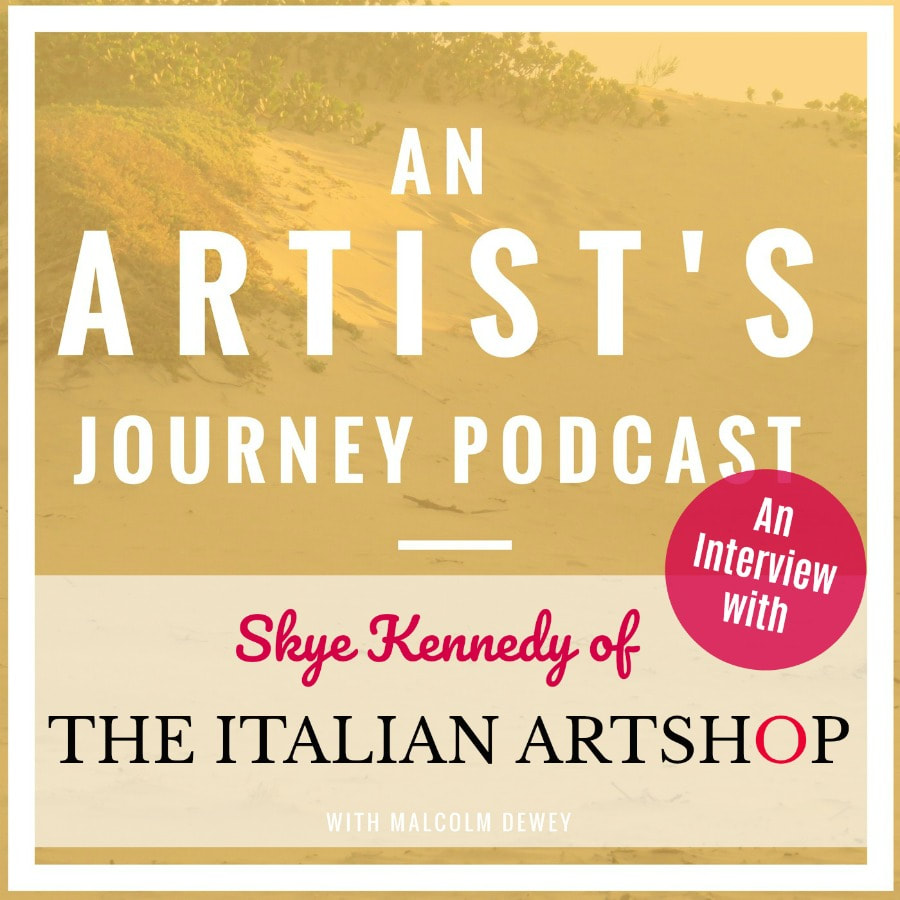

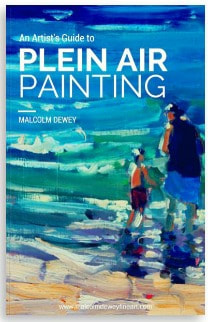
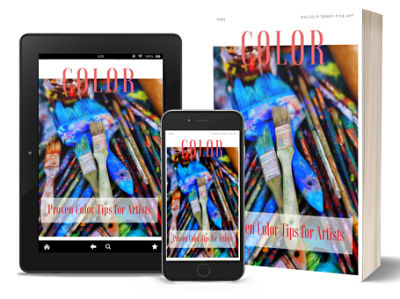
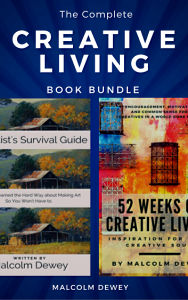
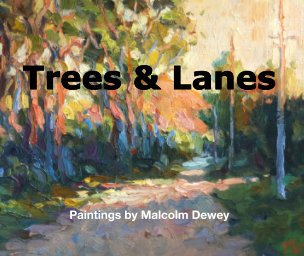


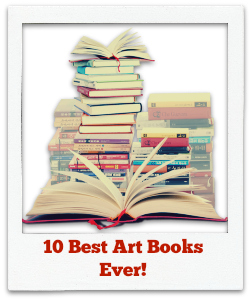
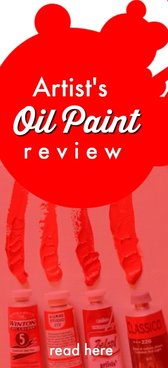
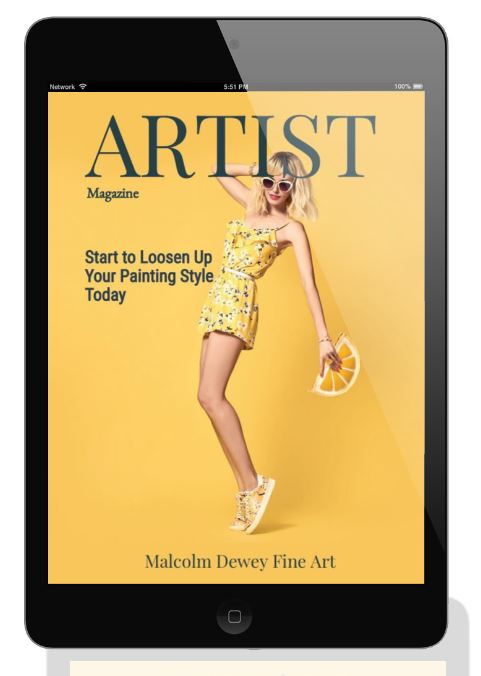
 RSS Feed
RSS Feed
